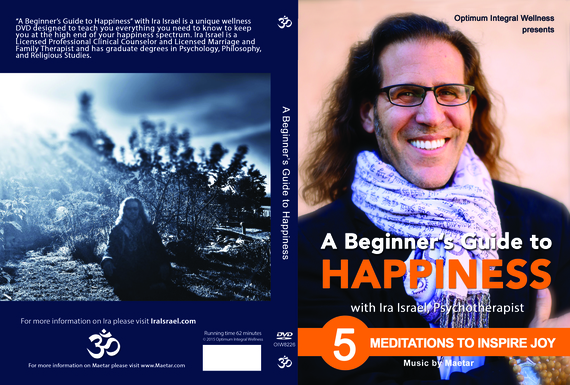Growing up, I'd always assumed that having money would bring happiness and peace of mind. At thirty, I found that I'd achieved my dream of money and success but I was still anxious and frustrated, and despite being married, having two wonderful children, and being surrounded by friends and business colleagues and the luxuries my wealth afforded me, I felt isolated and alone. ~ Steven Jay Fogel
The study of happiness is incredibly fascinating. I have been particularly impressed by the research of Sonja Lyubomirsky in "The How of Happiness" and "The Myths of Happiness," as well as the histories of happiness by Darrin McMahon in "Happiness: A History" and Jennifer Michael Hecht in "The Happiness Myth: Why What We Think Is Right Is Wrong."
Personally I espouse and teach one facet of Martin Seligman's "Positive Psychology," which is that everyone has a range of happiness and there are tools that keep us in the higher echelons of our happiness ranges - for example, eating correctly, sleeping sufficiently, getting enough exercise, cultivating loving relationships, meditation - and there are (more blunt) tools that keep us in the lower echelons of our happiness ranges - for example, drinking a bottle of gin for breakfast, playing video games in a dark room for 16 hours per day, being in constant competition with everyone around us, etc.
The question "Would you rather be happy and poor or unhappy and wealthy?" is obviously inane because we all know happy wealthy people, sad wealthy people, happy poor people, and sad poor people. My point is that there is very little correlation between wealth and happiness once our basic needs are met. And yet, many of the people who I meet are "crazybusy" doing things to earn money - even though this busyness/business often functions more as a distraction from unhappiness rather than an actual activity that will engender real, long-lasting happiness.
I've taken the scientific research on happiness and combined it with what I learned from my graduate studies in Psychology, Philosophy, and Religious Studies and distilled it down to a one hour DVD entitled "A Beginner's Guide to Happiness."
